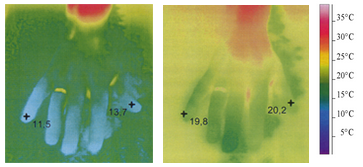Why Pharma Nord Magnesium Supplements?
- Bio-Magnesium contains a complex with three different magnesium salts in a matrix making it fast-soluble and easily absorbed
- Available in packs of 60 and 150 tablets
- Bio-Magnesium is manufactured to pharmaceutical standards
- Each tablet contains 200 mg of pure magnesium
- The magnesium tablets dissolve completely within a few minutes – even in people with a low acid content
- Gluten Free / Lactose Free / Soy Free / Yeast Free / Sugar Free
Bio-Magnesium
Bio-Magnesium
Choose size
£8.26You save £1.24
Interval
Get your supplements at regular intervals with Autoship. At any time you can cancel the service or change the content or shipping interval.
See how to save with Autoship
- Description
- Data
- FAQ
- Reviews
Magnesium Supplements
Magnesium is a nutrient (or mineral/element) essential in helping our bodies to function.
Magnesium is part of more than 600 different enzyme processes in the body, many of which contribute to normal muscle function, nervous system function, and psychological functions. Magnesium is also important for the maintenance of normal bones and teeth.
Other potential benefits of magnesium have also been studied in a wide range of areas, including blood pressure, cardiovascular disease, sleep and migraines.
When taking magnesium supplements, a dose of 200mg-400mg is recommended per day, depending on your diet.
Magnesium supplements from Pharma Nord contain a complex of three different Magnesium compounds: acetate, hydroxide and carbonate. This ensures good bioavailability and is gentle on the gut.
Magnesium Deficiency
Magnesium deficiency is very common. Magnesium can be excreted when we are stressed and eating a high caffeine, high sugar diet.
If you fidget, have restless legs, suffer from anxiety, have hypertension or palpitations, you could need more magnesium in your diet. Magnesium is believed to have an anti-hypertensive effect and may help with sleep patterns.
Magnesium levels in the body deplete following intense physical activity, or by drinking alcohol. Many individuals may not have an adequate intake of magnesium, because of their reliance on processed foods, which contain little magnesium.
What is Magnesium
Magnesium is an essential dietary mineral; although the human body contains a relatively small amount (approximately 25g, 60% of which is in the skeleton), magnesium plays a vital role in the normal functioning of the body.
Magnesium used in supplements may occur in several chemical forms; magnesium oxide is the least expensive but is poorly absorbed, magnesium hydroxide is the form most readily absorbed, whilst magnesium acetate and magnesium carbonate are least likely to cause digestive system upset.
More information on Magnesium
Our In-House team including our Senior Nutritionist has written articles on Magnesium:
- Managing A Migraine
- Sleeping Advice - How many of us have difficulty sleeping ?
- Ward off high blood pressure and heart disease with magnesium tablets
- Restless Leg Syndrom ruined my sleep for 40 years
| 1 tablet contains: | % NRV* | ||
|---|---|---|---|
| Magnesium | 200 mg | 53% |
* NRV: Nutrient Reference Value.
Product Facts
Directions:
1-2 tablet per day or as recommended by a physician. To be taken after food.
Do not exceed recommended amount.
Suitable for vegetarians and vegans .
Nutritional supplements should not be used as a substitute for a varied diet and a healthy lifestyle.
Pregnant and lactating women and those on medication should seek professional advice prior to taking supplements.
People with renal disease should exercise caution if taking magnesium supplements.
Ingredients:
Magnesium Carbonate
Magnesium Hydroxide
Magnesium Acetate
Bulking Agent: Microcrystalline cellulose
Anti-caking agent: Dicalcium phosphate
Glazing agent: Hydroxypropyl methylcellulose
Anti-caking agent: Magnesium salts of fatty acid
Firming agent: Silicon dioxide
Storage:
Room temperature and out of direct sunlight. Keep out of reach of children.
Shelf Life:
Minimum 3 Years
|
What is magnesium?
Magnesium is an essential mineral and a vital alkaline-forming element. Also, it is the fourth most abundant mineral in the human body, with 98% of it being stored inside the cell.
Needed in over 600 enzymes within the body, magnesium is truly the body's workhorse. Needed for muscle function, healthy bones and teeth, energy production and more, a lack of magnesium can negatively impact general health and physical wellbeing. Not only this, magnesium is often referred to as the relaxing mineral due to its contribution to a healthy nervous system and psychological functions.
Magnesium is present in various food sources such as leafy greens, nuts and seeds though recent research suggests our intakes need support.
Why do we need to supplement?
The need for extra magnesium is seen among coffee drinkers and elite athletes because excessive coffee consumption and heavy perspiration is known to deplete the body’s magnesium stores. Magnesium can also be depleted by alcohol abuse, hard physical activity and stress.
According to the UK National Diet and Nutrition Survey, run by Public Health England, a substantial proportion of adults had intakes below recommended limit. Reasons proposed for this were that people weren’t choosing enough magnesium-rich foods and changes in agriculture have decreased magnesium intakes 1.
How does magnesium work in the body?
Magnesium has several important roles in the body. It supports more than 600 different enzymatic processes which allows it to contribute to the following:
- Normal muscle function
- Normal energy metabolism
- Maintenance of normal bones and teeth
- Normal psychological functions and electrolyte balance
- Normal functioning of the nervous system
- A reduction of tiredness and fatigue
- Normal protein synthesis
- The process of cell division
Benefits in research
Mental wellbeing
Various studies have shown that a lack of magnesium can be detrimental to mental wellbeing and may trigger anxiety and/or depression symptoms. Studies have also shown that correcting this lack of magnesium can induce improvement in these symptoms 2.
Stress
Magnesium may support brain functions in several ways, including stimulating the use of the 'anti-anxiety' neurotransmitter, gamma-aminobutyric acid (GABA). GABA is an inhibitory compound that's able to reduce excessive neuronal activity in the brain - without it, we would never be able to relax. By stimulating GABA, magnesium is able to effectively 'put the brakes' on excessive activity in the brain linked to anxiety, insomnia and even migraines 3. Studies also demonstrate that magnesium supplementation is associated with a drop in levels of cortisol, the ‘stress hormone’ 4.
Sleep Quality
Persistent sleeping problems can result in mood disturbance, poor concentration, fatigue and even elevated risk of cardiovascular disease. Magnesium supplements may assist a restorative night's sleep, according to various trials. In one such trial, those who took magnesium supplements over a period of 8 weeks had improved sleep quality versus those who took a placebo 4.
Muscle cramps
Magnesium is essential for nerve and muscle function, a lack of which can cause cramping of the muscles 5.
Blood Pressure
Several studies show that magnesium supplementation has a relaxing effect on the blood vessels, helping to decrease high blood pressure 6.
Sports
Physical exercise may deplete magnesium stores in the body. Proposed to be due to its role in energy metabolism and muscle function, supplementation has been shown in various trials to enhance athletic performance 7.
Vitamin D support
Adequate magnesium is essential for the proper working of vitamin D3 in the body, including its conversion from calcidiol (the stored form) to calcitriol (the active form) 8. Those who take vitamin D should consider taking magnesium as well.
Why Bio-Magnesium?
Bio-Magnesium is a complex of three different magnesium sources. Each tablet provides you with 200 mg of pure magnesium. The tablet contains a mixture of organically and inorganically bound magnesium contained in a matrix that causes the tablet to dissolve completely in less than two minutes - even in people with a low stomach acid content - where the magnesium content will be changed to a absorbable ion form providing a high absorption.
.png)
Documented bioavailability
A double-blind, placebo-controlled study from 2008 showed that participants taking Bio-Magnesium every day for eight weeks had serum magnesium contents that were six times higher than those in the control group who had not received the magnesium supplement 9.
Magnesium Test
We placed two magnesium tablets in separate glasses of water. In the left glass the Bio-Magnesium tablet from Pharma Nord is completely dissolved and ready to be absorbed after a few minutes. In the glass to the right we put a magnesium tablet from a competitor. Even after 24 hours in the water the competitor's tablet shows no sign of dissolving.
.png)
References
1.NDNS: results from years 7 and 8 (combined) [Internet]. GOV.UK. 2019 [cited 2 May 2019]. Available from: https://www.gov.uk/government/statistics/ndns-results-from-years-7-and-8-combined
2. Jacka F, Overland S, Stewart R, Tell G, Bjelland I, Mykletun A. Association Between Magnesium Intake and Depression and Anxiety in Community-Dwelling Adults: The Hordaland Health Study. Australian & New Zealand Journal of Psychiatry. 2009;43(1):45-52.
3. Möykkynen T, Uusi-Oukari M, Heikkilä J, Lovinger D, Lüddens H, Korpi E. Magnesium potentiation of the function of native and recombinant GABAA receptors. Neuroreport. 2001;12(10):2175-2179.
4. Held K, Antonijevic I, Künzel H, Uhr M, Wetter T, Golly I et al. Oral Mg2+ Supplementation Reverses Age-Related Neuroendocrine and Sleep EEG Changes in Humans. Pharmacopsychiatry. 2002;35(4):135-143.
5. Pham P, Pham P, Pham S, Pham P, Pham P, Pham P. Hypomagnesemia: a clinical perspective. International Journal of Nephrology and Renovascular Disease. 2014;:219.
6.Kawano Y, Matsuoka H, Takishita S, Omae T. Effects of Magnesium Supplementation in Hypertensive Patients. Hypertension. 1998;32(2):260-265.
7. Golf SW, Bender S, Gruttner J: On the Significance of Magnesium in Extreme Physical Stress. Cardiovascular Drugs and Therapy. 1998, 12: 197–202. 10.1023/A:1007708918683.
8. Uwitonze A, Razzaque M. Role of Magnesium in Vitamin D Activation and Function. The Journal of the American Osteopathic Association. 2018;118(3):181.
9. Poikolainen K, Alho H. Magnesium treatment in alcoholics: A randomized clinical trial. Substance Abuse Treatment, Prevention, and Policy. 2008;3(1).
About the nutrient
Carnitine is a non-essential, water-soluble amino acid. One of the roles of carnitine in the body is its contribution to the mitochondrial oxidation of long-chain fatty acids obtained from the diet. Most of the body's carnitine supply is stored in muscle tissue, including the heart muscle. Normal seminal fluid also contains carnitine.
Why do we need to supplement?
Carnitine is non-essential, meaning the body can produce some by itself, via the amino acid lysine. Our production of this amino acid (and therefore our total levels) drop with increasing age.
Carnitine is found in some dietary sources such as red meat and limited quantities in plant protein. It is for this reason that vegetarians (and vegans) often have much lower levels of this amino acid.
How does it work in the body?
L-carnitine’s main mode of action is supporting the transfer of fat (derived from our diet) into the mitochondria of the cell, where they are metabolised.
The mitochondria is a part of the cell often referred to as the ‘powerhouse’. Mitochondria (with the help of various nutrients including coenzyme Q10 and l-carnitine) are able to convert the broken-down elements of our food, such as glucose, into energy. L-carnitine operates by being part of the substances carnitine palmitoyltransferase 1 & 2, enzymes that act as a shuttle for ‘fatty acids’, a simple unit of fat which all dietary fats convert to after digestion. L-carnitine allows these fatty acids to be delivered into the mitochondria (after being converted to Acyl Co-A), where they can be metabolised via the process of B-oxidation, converting the fat into adenosine triphosphate (ATP) - the body’s unit of energy.
Benefits in Research
Reduction in body fat and fatigue
Studies have shown promise in L-carnitine’s ability to support the reduction of body fat. In one randomized control-trial comparing an L-carnitine supplementation group of patients with a group taking placebos, the treatment group experienced a significant reduction in body fat compared to placebo (-3.1kg vs -0.5kg) 1 .
The main mechanism proposed for this is that L-carnitine supports the use of fat as an energy source, including stored body fat.
Athletic performance
Dietary fats are more energy dense than carbohydrates or proteins, with 9 kcals per gram versus 4 kcals per gram. As L-carnitine grants greater access to this rich source of energy, it’s theorized that L-carnitine would support athletic performance. Various studies have shown that supplementation with L-carnitine can offer a range of benefits which would support athletic activity, including improved stamina, better oxygenation of muscles and decreased recovery times between exertion 2,3.
Bio-Carnitine utilizes the L-tartrate form of carnitine, considered to be the superior carnitine form for athletic performance.
Sperm Quality
In various trials, carnitine supplementation has been shown to be an effective method of improving sperm quality, especially morphology (or shape). The proposed reason for this benefit is that carnitine effectively shuttles fatty acids into the mitochondria of the sperm cells, providing them with cellular energy, but is also shown to protect the cells and DNA from oxidative stress 4.
Cognition
Some research shows that L-carnitine supplementation can support cognition and general mental processes, including memory and learning 5.
Bio-Carnitine
The carnitine in Bio-Carnitine is produced by means of a unique manufacturing technique based on fermentation. This method that carries the 'Carnipure' quality stamp makes it possible to produce L-carnitine exactly like it is done in nature. The result is pure, nature-identical L-carnitine L-Tartrate without residues of D-carnitine.
What is Carnipure?
Carnipure® is L-carnitine in an exceptionally pure form, manufactured to the highest standards of production quality and traceability of raw materials. This means that all batches of Carnipure can be traced directly back to their origin from the unprocessed raw materials to the finished extract. It is a guarantee of a high quality product with standardized efficiency, purity and quality in each capsule.
References
1. Pistone G, Marino A, Leotta C, Dell???Arte S, Finocchiaro G, Malaguarnera M. Levocarnitine Administration in Elderly Subjects with Rapid Muscle Fatigue. Drugs & Aging. 2003;20(10):761-767.
2. KRAEMER W, VOLEK J, FRENCH D, RUBIN M, SHARMAN M, GOMEZ A et al. The Effects of L-Carnitine L-Tartrate Supplementation on Hormonal Responses to Resistance Exercise and Recovery. Journal of Strength and Conditioning Research. 2003;17(3):455-462.
3. Spiering B, Kraemer W, Hatfield D, Vingren J, Fragala M, Ho J et al. Effects of L-Carnitine L-Tartrate Supplementation on Muscle Oxygenation Responses to Resistance Exercise. Journal of Strength and Conditioning Research. 2008;22(4):1130-1135.
4. Lenzi A, Lombardo F, Sgrò P, Salacone P, Caponecchia L, Dondero F et al. Use of carnitine therapy in selected cases of male factor infertility: a double-blind crossover trial. Fertility and Sterility. 2003;79(2):292-300.
5. Malaguarnera M, Gargante M, Cristaldi E, Colonna V, Messano M, Koverech A et al. Acetyl l-carnitine (ALC) treatment in elderly patients with fatigue. Archives of Gerontology and Geriatrics. 2008;46(2):181-190.
Bio-Calcium+D3+K1+K2 is designed as a comprehensive bone care complex, containing key vitamins and minerals with research supporting their roles in healthy bone formation.
Why do we need to supplement?
Bones consist of living tissue that is constantly being replaced. The bone-forming cells are called osteoblasts and the bone-degrading cells are called osteoclasts. As bone tissue also functions as the body's calcium storage facility. It is particularly important that we absorb sufficient calcium in the bones. If the body gets too little calcium, the osteoclasts are activated which breaks down bone tissue to cover the body's need for calcium.
It is important that you get enough calcium, vitamin D and vitamin K during the years when your bones are developing. Children and young people increase their bone mass because the osteoblasts are more active than osteoclasts up to the point where the bones reach their peak mass (usually around the age of 30 years). It's been called “building a bone bank.” After reaching this peak mass the amount of calcium lost from the bones will exceed the amount stored, causing a net loss of bone mass (about 0.6% per year).
Women suffer more from a hormone-related loss of bone mass from the beginning of their menopause. As a consequence, women’s total annual loss of bone mass can be as much as six per cent when their ovaries stop producing hormones. Men's loss of bone mass is generally only one-half that of women.
An active, non-smoking lifestyle also helps to prevent loss of bone mass.
As shown in the following illustration, women are more exposed to loss of bone mass than men. Research shows that women who are treated with estrogen are not necessarily in less need of calcium.

What is vitamin D?
Vitamin D is a fat-soluble vitamin that is available in several forms, of which D3 is absorbed most easily in the body. Vitamin D contributes to the maintenance of normal bones, teeth and muscle function.
Vitamin D is in fact a pro-vitamin, as we are able to synthesize it in our skin when we get exposed to sufficient amounts of sunshine. However, at latitudes such as in the UK, the sun is only high enough in the sky for us to produce vitamin D from May to September.
Health authorities recommend Vitamin D supplements to children, pregnant women, dark-skinned children/adults, veiled women (and others who wear garments that cover most of the body), and to individuals who rarely or never get exposed to sunlight. In addition, nursing home residents and people over the age of 70 are advised to take vitamin D as a means of protection against brittle bones.
What is vitamin K?
K-vitamin is a fat-soluble vitamin important for the maintenance of normal bone tissue, through supporting the activation of a protein called osteocalcin.
Vitamin K is found in two natural forms: K1 (phylloquinone) and K2 (menaquinone).
A natural source of vitamin K1 are dark green vegetables. Some vitamin K2 is produced by our intestinal bacteria and dietary sources of vitamin K2 are rare.
How Calcium+D3+K1+K2 work together
Vitamin D increases the intestinal uptake of calcium from the gut, but also induces the synthesis of osteocalcin. Osteocalcin is responsible for depositing calcium into the bone matrix (via the bone-building osteoblast cells) but must be activated by vitamin K before it can achieve this function. Without adequate vitamin D3 and vitamin K, calcium is less likely to ever reach the bone structure.
.png)
About Ginkgo biloba
Ginkgo, also known as Maidenhair Tree, originates from Southeast Asia. For centuries, extract from the leaves of this tree has been used for therapeutic purposes. This tree, which is not related to any existing tree species, has existed for 240 million years.
Its characteristic fan-shaped, bi-lobed leaves contain several active ingredients, of which ginkgoflavone glycosides and terpene lactones constitute the main therapeutic properties.
Why do we need to supplement?
Ginkgo biloba makes it possible to improve the blood flow in the brain and other vessels around the body, supplying cells with more oxygen and nutrients.
As demonstrated in many clinical trials, ginkgo biloba may offer therapeutic benefits to various conditions tied to poor circulation including tinnitus, Raynaud's syndrome and intermittent claudication.
How does it work in the body?
Ginkgo biloba contains a number of active substances, with the main ones being:
Flavone glycosides demonstrate potent antioxidant activity, protecting tissues (especially brain tissue) from oxidative damage caused by environmental factors such as diet and pollution.
Terpene lactones have a number of effects on blood, including inhibiting platelet aggregation and blood clot formation.
These actions allow ginkgo biloba to benefit the cardiovascular system as a whole, promoting blood flow by dilating arteries, inhibiting development of blood clots and protecting cells. Ginkgo, therefore, benefits many conditions brought about by impaired blood flow.
Benefits in Research
Raynaud's syndrome
Thought to be caused by sensitive blood vessels that cause poor circulation to the extremities, Raynaud’s syndrome (also known as Raynaud's phenomenon) is typically characterized by cold and painful hands and feet, even at relatively mild temperatures.
Ginkgo biloba is traditionally used to relieve the symptoms of Raynaud's and has been shown to lower the number of attacks in clinical trials, versus placebo 1. One proposed mechanism for this effect is Ginkgo's ability to boost circulation and delivery of warm blood to the hands and feet.
Bio-Biloba supplementation specifically has been shown to elevate the temperature of cold hands.

Without Bio-Biloba: After 10 minutes the skin temperature increases from 12.6 to approx. 20°

After using Bio-Biloba: After 10 minutes the skin temperature increases from approx. 13.8° to approx. 30.9° C
Tinnitus
Tinnitus can be exceptionally irritating to the sufferer, often characterized as hearing noises that aren't actually present in the environment. These noises include buzzing, humming, hissing or ringing. It's not clear what causes tinnitus, but is believed to be multifactorial with poor circulation to the ears being a possible cause.
Ginkgo biloba is traditionally used to relieve the symptoms of tinnitus and has shown to be an evidence-based treatment option when using a standardized supplement 2.
Cognitive decline
Trials also demonstrate that ginkgo may show reliable potential in supporting cognitive function.
In one clinical trial featuring 333 people with dementia, those taking a standardized ginkgo biloba supplement for 24 weeks experienced improved cognitive functioning, decreased aggression, depression and anxiety 3. In a similar study in those without a dementia diagnosis, a standardized ginkgo supplement taken daily over 3 months was able to improve cognitive function and reaction times compared to placebo 4.
One of the main proposed actions for this benefit is that Ginkgo is able to improve circulation to the brain, improving oxygen and nutrient delivery throughout the busy organ 5.
Intermittent claudication/ painful legs
Various studies show that Ginkgo biloba supplementation can reduce symptoms of intermittent claudication, caused by poor circulation in the legs which causes pain and tiredness (especially in the calf muscles) when walking.
Intermittent claudication is known as a symptom of peripheral arterial disease (PAD), a common condition usually caused by a build-up of fatty deposits (atheroma) in the walls of the leg vessels.
A meta-analysis found that Ginkgo biloba supplementation decreased the symptoms of these conditions, including the ability to walk greater distances without experiencing tired and painful legs 6.
Stroke recovery
When taken in combination with certain medicines, Ginkgo biloba may support recovery after a stroke. A recent study demonstrated that the combination of aspirin and Ginkgo biloba supplementation improved recovery rates of those who had suffered from an ischaemic stroke, versus aspirin alone.
The major study involving 348 patients who had experienced an acute ischaemic stroke in the previous week, took either aspirin (a common medicine advised after a stroke) or a combination of both aspirin and Ginkgo biloba 7.
Why Pharma Nord?
The UK THR licensed Ginkgo biloba product
Bio-Biloba offers the only fully THR licensed ginkgo biloba tablet produced under pharmaceutical standards on the UK market. This stands as an unmatched sign of quality and safety, as the risk of contamination from other herbs is exceptionally low (a common issue for herbal supplements).
Backed by scientific evidence
Bio-Biloba is standardized to levels of active compounds found to show human benefit in clinical. This extract is based on 24% flavone glycosides and 6% terpene lactones.
Pure product
A Dutch study of 21 Ginkgo biloba products concluded that Bio-Biloba is the purest product on the market.
Best antioxidant protection
A British study of 18 different Ginkgo biloba preparations shows that Bio-Biloba ensures the highest degree of antioxidant activity 8.

References
1. Muir A, Robb R, McLaren M, Daly F, Belch J. The use of Ginkgo biloba in Raynaud’s disease: a double-blind placebo-controlled trial. Vascular Medicine. 2002;7(4):265-267.
2.von Boetticher A. Ginkgo biloba extract in the treatment of tinnitus: a systematic review. Neuropsychiatric Disease and Treatment. 2011;:441.
3. Ihl R, Tribanek M, Bachinskaya N. Efficacy and Toguaranteey of a Once Daily Formulation of Ginkgo biloba Extract EGb 761® in Alzheimer's Disease and Vascular Dementia: Results from a Randomised Controlled Trial. Pharmacopsychiatry. 2011;45(02):41-46.
4. Wesnes K, Simmons D, Rook M, Simpson P. A double-blind placebo-controlled trial of tanakan in the treatment of idiopathic cognitive impairment in the elderly. Human Psychopharmacology: Clinical and Experimental. 1987;2(3):159-169.
5.Cognitive Performance, SPECT, and Blood Viscosity in Elderly Non-demented People Using Ginkgo Biloba. Pharmacopsychiatry. 2003;36(4):127-133.
6. Pittler M, Ernst E. Ginkgo Biloba extract for the treatment of intermittent claudication: a meta-analysis of randomized trials. The American Journal of Medicine. 2000;108(4):276-281.
7. Li S, Zhang X, Fang Q, Zhou J, Zhang M, Wang H et al. Ginkgo biloba extract improved cognitive and neurological functions of acute ischaemic stroke: a randomised controlled trial. Stroke and Vascular Neurology. 2017;2(4):189-197.
8.Mantle D, Wilkins R, Asim Gok M. Comparison of Antioxidant Activity in Commercial Ginkgo biloba Preparations. The Journal of Alternative and Complementary Medicine. 2003;9(5):625-629.
See related categories
Bio-Magnesium in research

Related articles

News
Taking vitamin D during pregnancy is good for the ...24/01/2025
New study shows that a daily vitamin D supplement during pregnancy can support the child’s bone heal...







.jpg?w=285&quality=100)
.jpg?w=285&quality=100)
.jpg?w=285&quality=100)
.jpg?w=285&quality=100)




